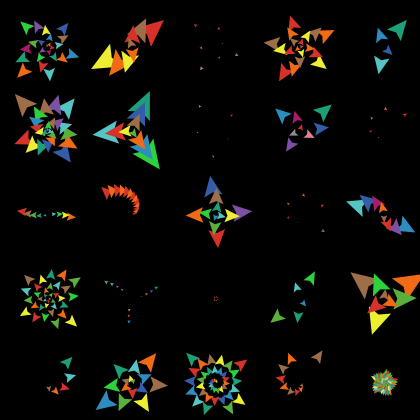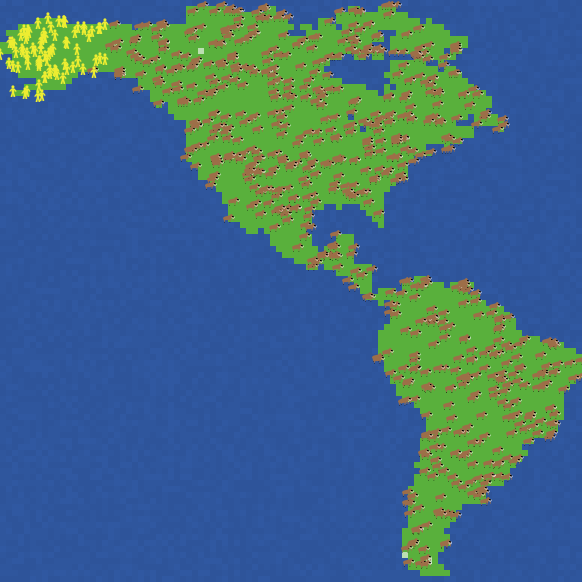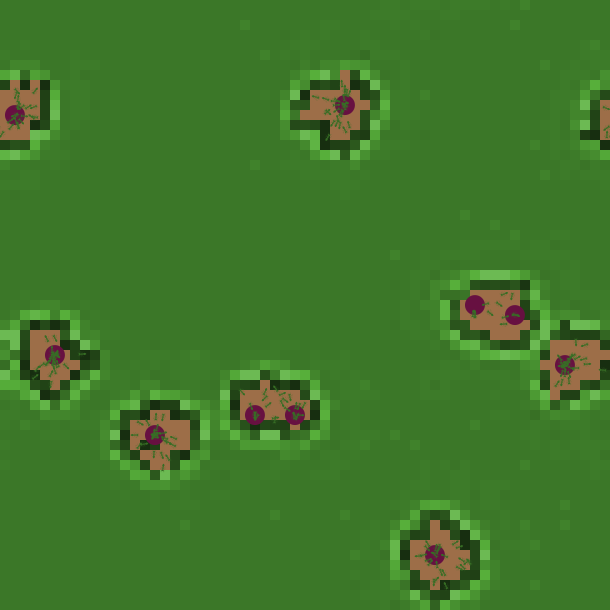random
random is a primitive that allows us to add randomness into our models. When we provide a number to random, it will report a random number from 0 to N-1. Imagine that each time you run the primitive random N, you are rolling a die with N number of sides. For example, if we wanted to create a forest fire in which we assigned each patch to be either a tree (pcolor = green) or ground (pcolor = brown) but with 70 percent tree density, we would write the following code:
ask patches [
ifelse random 100 < 70 [
set pcolor green
][
set pcolor brown
]
]
Things to keep in mind when using random:
- Always remember that
randomwill give us numbers within the range from 0 to N - 1, instead of 1 to N. For example, if we runrandom 3, we may get 0, 1, or 2, but not 3. - If you want to generate a random number from
AtoB, you can use the following format:A + (random (B - A + 1)). For example, if we wanted to generate a random number between 4 and 6 (that is, we want to get 4, 5, or 6), we could write the following code:4 + random (6 - 4 + 1)or just4 + random 3. randomonly generates positive integer numbers. If you need to generate floating point numbers, you should userandom-float.- The algorithm of
randomgenerates a uniform distribution. For example, every time we runrandom 5, there is an equal likelihood of getting 0, 1, 2, 3, or 4. If you would like to generate random numbers over a normal distribution, you should userandom-normal.
In the model example below, we have 6 turtles that represent the 6 faces of a dice. Every time we click the roll dice button, each turtle picks a random number between 1 to 6 (including 6) and updates its shape accordingly.
Why do we need to add 1 to value we give to random to get the full range of values? In math and computer science language, we would say that the random primitive produces numbers in the range 0 to N exclusive, meaning that the number N itself is excluded from the possible set of values. In order to make it inclusive for N we have tell random to set the exclusive limit at N + 1, which gets N back in the range of possible results.
Try it Yourself
What's next?
Once you mastered the random primitive, don't stop there. Check out the resources below to improve your NetLogo skills.
Published NetLogo models that use the random primitive:
Similar primitives:
random-float
Reports a random number with decimal points between 0 and a specified number.
random-normal
Reports a random number with decimal points that is picked from over a normal distribution with a specified mean and standard deviation.
globals
Defines variables that can be accessed throughout the whole model and has the same value for all the agents.
turtles-own
Declare a variable that belongs to turtles.



